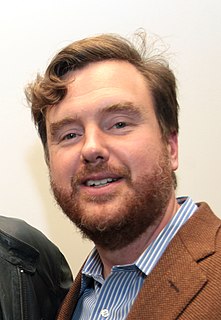A Quote by Richard Flanagan
As a novelist, you have to be free. Books can't be an act of filial duty.
Related Quotes
If people believe that they are marrying out of love and free choice rather than out of duty, they are more likely to decide, if love should die, that the free choice to join together is no more significant than the free choice to part, and to look for love elsewhere; those married out of duty expect less love to begin with, and what duty has brought together, duty may keep together.
Kant does not think there is anything wrong with being beneficent from sympathy. He thinks we have a duty to cultivate sympathetic feelings by participating in the situations of others and acquiring an understanding of them. He thinks we also have a duty to make ourselves into the kind of person for whom the recognition that something is our duty would be a sufficient incentive to do it (if no other incentives were available to us). That's what he means by "the duty to act from the motive of duty".
Colleges have a twofold duty when it comes to dealing with censorship. First, there is the duty to not censor the free expression of ideas, especially important and newsworthy ones. Second, colleges have the duty to protect speakers from being silenced by others. Century has failed miserably on both counts.






































